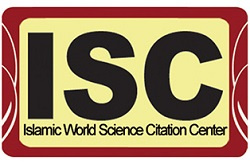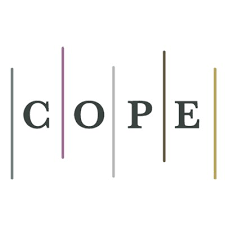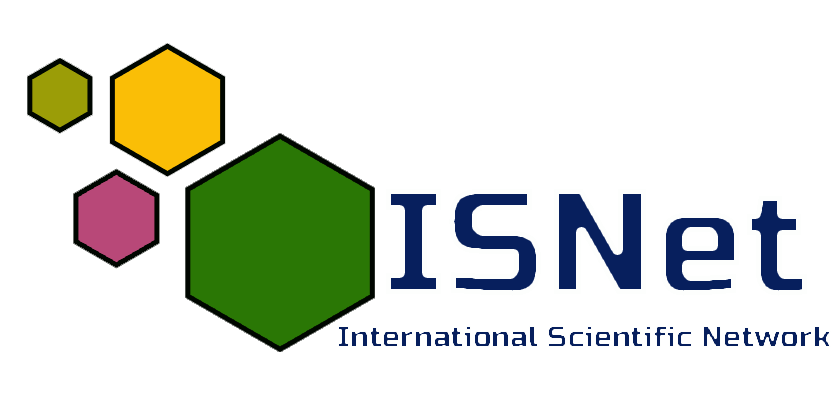Evaluating Blockchain-Based Supply Chain Challenges (A Survey)
DOI:
https://doi.org/10.59615/ijie.3.1.23DOR:
https://dorl.net/dor/20.1001.1.27831906.2023.3.1.3.9Keywords:
Smart Supply Chain, Blockchain, Blockchain Challenges, blockchain-based supply chainAbstract
Blockchain technology is an emerging technology that will have a significant impact on the business of organizations. One of the influential areas of blockchain technology is the supply chain sector. Supply chain is a network of people and companies that focuses on the production and distribution of a specific product or service from the stage of primary producers to customers and consumers. Most supply and distribution networks face problems with managing all these components together. Many problems of current supply chains can be solved through blockchain technology; Because blockchain offers us very good and pristine ways to record, transfer and share information. The literature in this field is more focused on the technological sector and pays less attention to other sectors. In this research, it is emphasized the need to pay attention to the relationships between supply chain partners and change management when adopting this technology. Also, the current research identifies some of the challenges of adopting blockchain technology with a comprehensive view for the first time and places these challenges in a new classification. These challenges are classified in the groups of organizational challenges, inter-organizational challenges, external/environmental challenges, and technological challenges.
Downloads
References
• Aliahmadi, A., Nozari, H., & Ghahremani-Nahr, J. (2022). A framework for IoT and Blockchain Based on Marketing Systems with an Emphasis on Big Data Analysis. International journal of Innovation in Marketing Elements, 2(1), 25-34. https://doi.org/10.52547/ijime.2.1.25
• Aliahmadi, A., Nozari, H., & Ghahremani-Nahr, J. (2022). AIoT-based sustainable smart supply chain framework. International journal of innovation in management, economics and social sciences, 2(2), 28-38. https://doi.org/10.52547/ijimes.2.2.28
• Barzegar Keliji, P., Aghajani, H. A., & Shayan Nia, S. A. (2021). Presenting a model based on artificial intelligence in the reverse supply chain of the home appliance industry in Tehran province by fuzzy genetic algorithm. Journal of Industrial Strategic Management, 6(1), 58-61. DOR: 20.1001.1.25382756.2021.6.1.5.2
• Bayanati, M., Peivandizadeh, A., Heidari, M. R., Foroutan Mofrad, S., Sasouli, M. R., & Pourghader Chobar, A. (2022). Prioritize Strategies to Address the Sustainable Supply Chain Innovation Using Multicriteria Decision-Making Methods. Complexity, 2022. https://doi.org/10.1155/2022/1501470
• Chandan, A., John, M., & Potdar, V. (2023). Achieving UN SDGs in Food Supply Chain Using Blockchain Technology. Sustainability, 15(3), 2109. https://doi.org/10.3390/su15032109
• Chen, Y., Bayanati, M., Ebrahimi, M., & Khalijian, S. (2022). A Novel Optimization Approach for Educational Class Scheduling with considering the Students and Teachers’ Preferences. Discrete Dynamics in Nature and Society, 2022. https://doi.org/10.1155/2022/5505631
• Daneshvar, A., Ebrahimi, M., Salahi, F., Rahmaty, M., & Homayounfar, M. (2022). Brent Crude Oil Price Forecast Utilizing Deep Neural Network Architectures. Computational Intelligence and Neuroscience, 2022. https://doi.org/10.1155/2022/6140796
• Eisapour, K., Bayanati, M., & Yousefpour, J. (2013). A mathematical model for ranking R&D organizationsas a technology development factor. Advances in Environmental Biology, 717-721.
• Fallah, M., Sadeghi, M. E., & Nozari, H. (2021). Quantitative analysis of the applied parts of Internet of Things technology in Iran: an opportunity for economic leapfrogging through technological development. Science and technology policy Letters, 11(4), 45-61. DOR: 20.1001.1.24767220.1400.11.4.3.7
• Ghadir, H., Shayannia, S. A., & Amir Miandargh, M. (2023). A Mathematical modeling of project risk response according to primary, secondary, and residual risks under conditions of uncertainty using the Tabu search algorithm. Journal of Industrial and Systems Engineering, 14(4), 50-66. DOR: 20.1001.1.17358272.2022.14.4.3.4
• Ghahremani-Nahr, J., & Nozari, H. (2021). A Survey for Investigating Key Performance Indicators in Digital Marketing. International journal of Innovation in Marketing Elements, 1(1), 1-6. https://doi.org/10.52547/ijime.1.1.1
• Iranmanesh, M., Maroufkhani, P., Asadi, S., Ghobakhloo, M., Dwivedi, Y. K., & Tseng, M. L. (2023). Effects of supply chain transparency, alignment, adaptability, and agility on blockchain adoption in supply chain among SMEs. Computers & industrial engineering, 176, 108931. https://doi.org/10.1016/j.cie.2022.108931
• Jum’a, L. (2023). The role of blockchain-enabled supply chain applications in improving supply chain performance: the case of Jordanian manufacturing sector. Management Research Review. https://doi.org/10.1108/MRR-04-2022-0298
• Nahr, J. G., Nozari, H., & Sadeghi, M. E. (2021). Green supply chain based on artificial intelligence of things (AIoT). International Journal of Innovation in Management, Economics and Social Sciences, 1(2), 56-63. https://doi.org/10.52547/ijimes.1.2.56
• Nozari, H., & Szmelter-Jarosz, A. (2022). IoT-based Supply Chain For Smart Business (Vol. 1). ISNET.
• Nozari, H., Fallah, M., & Szmelter-Jarosz, A. (2021). A conceptual framework of green smart IoT-based supply chain management. International journal of research in industrial engineering, 10(1), 22-34. https://doi.org/10.22105/riej.2021.274859.1189
• Nozari, H., Fallah, M., Kazemipoor, H., & Najafi, S. E. (2021). Big data analysis of IoT-based supply chain management considering FMCG industries. Бизнес-информатика, 15(1 (eng)), 78-96.
• Nozari, H., Fallah, M., Szmelter-Jarosz, A., & Krzemiński, M. (2021). Analysis of security criteria for IoT-based supply chain: a case study of FMCG industries. Central European Management Journal, 29(4), 149-171.
• Nozari, H., Ghahremani-Nahr, J., & Szmelter-Jarosz, A. (2022). A multi-stage stochastic inventory management model for transport companies including several different transport modes. International Journal of Management Science and Engineering Management, 1-11. https://doi.org/10.1080/17509653.2022.2042747
• Rafierad, S., Aghajani, H. A., Agha Ahmadi, G., & Rahmaty, M. (2022). Construction and Validation of Dimensions and Components of the Organizational Anomie Scale in order to provide a Native Model in Government Hospitals. Journal of System Management, 8(2), 57-73. DOI: 10.30495/jsm.2022.1950051.1602
• Rahmaty, M., Alvandi, A., & Hosseini, S. (2022). Presenting a Development Model of Sport Entrepreneurship in the Professional Clubs of Premier Football League: A Mixed Approach. Journal of Entrepreneurship Development, 15(2), 203-221. DOI: 10.22059/jed.2022.329594.653784
• Salehi Koocheh Baghi, S. A., Rahmaty, M., & Kia Kojouri, D. (2021). Presenting a Model of Organizational Insentience in the Red Crescent Society. Quarterly Scientific Journal of Rescue and Relief, 13(3), 228-236.
• Shayan Nia, S. A., & Mirataollahi Olya, R. (2021). Provide a model for manpower scheduling using a hybrid meta-innovative algorithm in the Water and Sewerage Company. Journal of Industrial Strategic Management, 6(2), 18-32. DOR: 20.1001.1.25382756.2021.6.2.2.1
• Shayannia, S. A. (2022). Designing a Multiobjective Human Resource Scheduling Model Using the Tabu Search Algorithm. Discrete Dynamics in Nature and Society, 2022. https://doi.org/10.1155/2022/5223535
• Shayannia, S. A. (2023). Presenting an agile supply chain mathematical model for COVID-19 (Corona) drugs using metaheuristic algorithms (case study: pharmaceutical industry). Environmental Science and Pollution Research, 30(3), 6559-6572. https://doi.org/10.1007/s11356-022-22608-6
• Tavakkoli-Moghaddam, R., Ghahremani-Nahr, J., Samadi Parviznejad, P., Nozari, H., & Najafi, E. (2022). Application of internet of things in the food supply chain: a literature review. Journal of applied research on industrial engineering, 9(4), 475-492. https://doi.org/10.22105/jarie.2021.301205.1368
• Tootian, S., Bayanaty, M., & Jalali, A. (2022). Identify The Dimensions And Components Of Communication Technology In Order To Empower Women Entrepreneurs In Business. An Approach to Business Management, 2(4), 32-49. DOI: 10.52547/JABM.2.4.49
• Xiao, P., Salleh, M. I., Zaidan, B. B., & Xuelan, Y. (2023). Research on risk assessment of Blockchain-driven Supply Chain finance: A systematic review. Computers & Industrial Engineering, 108990. https://doi.org/10.1016/j.cie.2023.108990
Published
How to Cite
Issue
Section
License
Copyright (c) 2023 Maryam Rahmaty

This work is licensed under a Creative Commons Attribution 4.0 International License.










